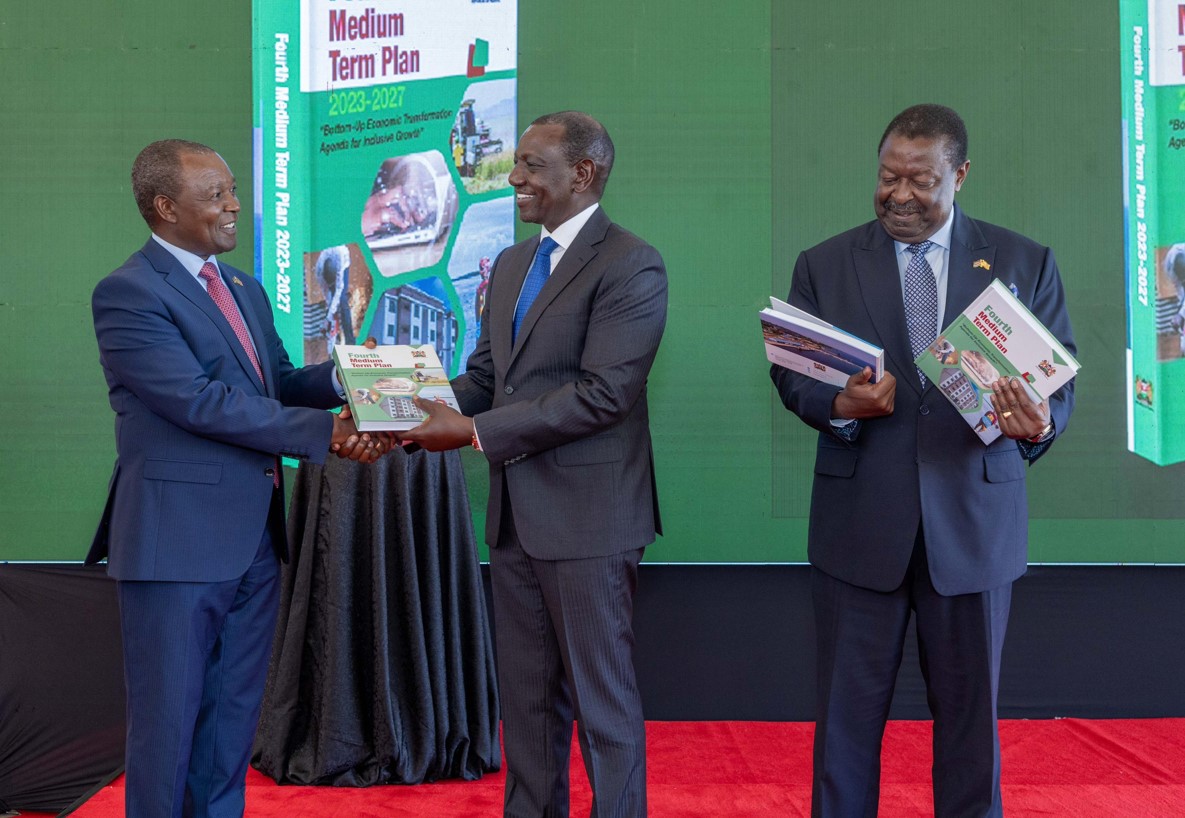Opinion: Scrutinising Kenya’s debt key in charting sustainable fiscal path

Kenya's public debt has ballooned from Sh2 trillion to over Sh10 trillion in a decade, pushing the debt-to-GDP ratio to a precarious 70 per cent.
In a move that is both overdue and potentially transformative, President William Ruto recently established a taskforce to do a forensic audit of Kenya's public debt. This decision comes amidst a backdrop of mounting fiscal pressures and vocal discontent from the country's youth.
While sceptics may dismiss this as political theatrical, the initiative could mark a pivotal moment in Kenya's economic governance if executed with rigour and followed by decisive action.
More To Read
- Ruto says NSSF contributions double in two years, could hit Sh1 trillion by 2027
- Three-judge bench to hear petition challenging National Assembly over unauthorised borrowing
- Kenya spends Sh7 of every Sh10 collected on debt repayment - report
- Kenya’s public debt hits Sh11.81 trillion as Treasury pledges prudent fiscal management
- Treasury given 60-day ultimatum to deliver debt management framework
- Debt: Senators expose how counties are driving contractors into bankruptcy
The numbers are stark. Kenya's public debt has ballooned from Sh2 trillion to over Sh10 trillion in a decade, pushing the debt-to-GDP ratio to a precarious 70 per cent. More alarmingly, debt servicing has usurped development spending as the government's largest expenditure. This is not merely an accounting problem; it is a millstone around the neck of Kenya's economic future.
The taskforce's mandate is commendably comprehensive. It aims to not only verify the current debt stock but also reconcile loan proceeds with their intended purposes, assess value for money, and recommend alternative financing strategies. This holistic approach is crucial. Too often, such exercises become mired in blame-games about past administrations' borrowing sprees. While accountability is important, the focus must be on charting a sustainable fiscal path forward.
However, the devil will be in the details — and in the political will to act on the findings. The taskforce must resist the temptation to produce a doorstop report filled with platitudes. Instead, it should deliver actionable insights and concrete recommendations.
To effectively execute this crucial audit, the presidential taskforce should employ a comprehensive strategy, combining rigorous data analysis with broad stakeholder engagement. This approach should encompass advanced data analytics, forensic accounting techniques, and thorough project evaluations to assess the true value derived from Kenya's borrowing.
Comparative analysis with international best practices, coupled with extensive consultations across various sectors of society, including the youth, will provide invaluable insights. The taskforce should also conduct a meticulous legal and regulatory review and leverage technology for enhanced transparency.
The success of this initiative hinges on the taskforce's ability to produce actionable recommendations that address both immediate fiscal pressures and long-term sustainability. These should include strategies for domestic revenue enhancement, the development of local debt markets, and stringent criteria for future borrowing.
Capacity building within government ranks and the implementation of robust financial management systems are equally crucial. The taskforce can deliver a thorough, transparent, and forward-looking audit that not only illuminates Kenya's current debt situation but also charts a clear path toward fiscal sustainability, ultimately addressing the concerns of the younger generation and setting the stage for more equitable economic development.
The composition of the taskforce — drawing from accounting, legal, and engineering professions — is encouraging. However, the absence of economists and representation from the office of the Auditor General and the office of the Controller of Budget is a curious omission that should be rectified. The complex interplay between debt, growth, and development demands economic expertise and a multi-dimensional approach.
Critics may argue that Kenya has been here before, with previous administrations promising fiscal rectitude only to succumb to the allure of easy credit. There is merit to this cynicism. Yet the current conjunction of domestic discontent, particularly among the youth, and a challenging global economic environment creates a unique impetus for change.
Moreover, Kenya is not alone in grappling with debt sustainability. From Sri Lanka's default to Ghana's IMF bailout, the perils of excessive borrowing are evident across the developing world.
Kenya has an opportunity to position itself as a leader in proactive debt management, potentially setting a template for other African nations.
The success of this initiative will ultimately be judged not by the quality of the taskforce's report, but by the government's willingness to implement tough recommendations. This may involve politically unpalatable decisions, from cancelling pet projects to reforming state-owned enterprises. President Ruto's administration must be prepared to expend political capital in pursuit of fiscal sustainability.
The writer is a public policy specialist, a development practitioner, and a management consultant. [email protected]
Top Stories Today











































